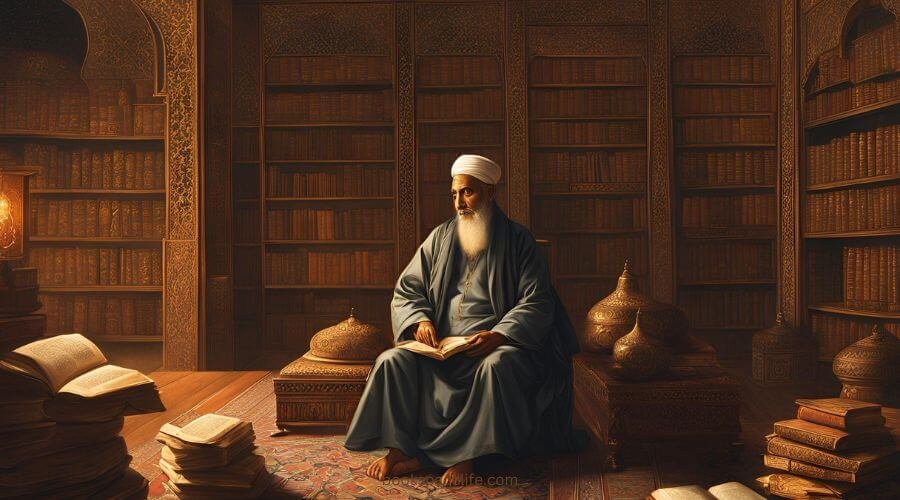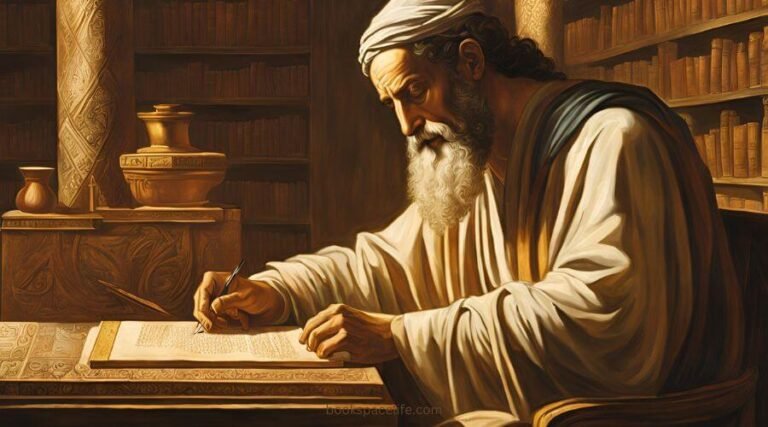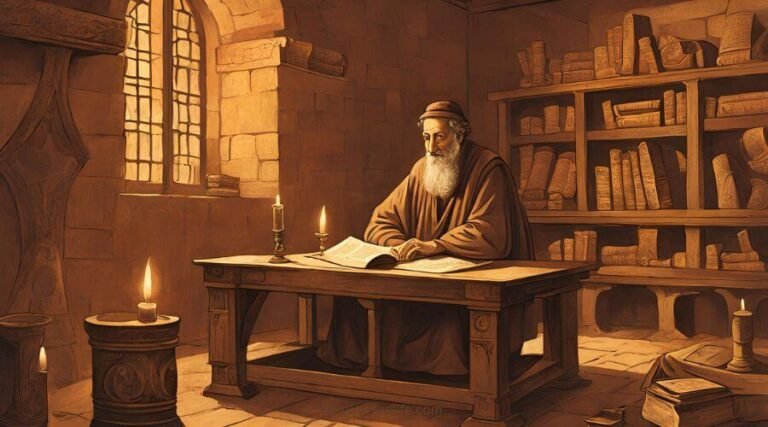Philo of Alexandria
Shah Waliullah Dehlawi : A Bridge Between Islamic Mysticism and Rational Thought
Shah Waliullah Dehlawi (1703–1762 CE) was a towering figure in the intellectual and spiritual history of South Asia.
A philosopher, theologian, and mystic, he stands as one of the most influential Islamic scholars of the 18th century.
Living during a period of political turmoil and cultural flux in Delhi, Shah Waliullah’s work had profound implications for Islamic thought, particularly in the context of South Asia. His intellectual legacy transcended geographical and cultural boundaries, influencing thinkers and reformers both in the Islamic world and beyond.
Table of Contents
(1) Early Life and Education
Shah Waliullah was born in 1703 in Delhi, India, into a family renowned for its scholarly background. His father, Shah Abdur Rahim, was a well-respected Islamic scholar, and his grandfather, Shah Waliullah’s maternal grandfather, was also a scholar of great repute.
Growing up in an atmosphere of learning and intellectual rigor, Shah Waliullah was deeply immersed in the study of Islamic jurisprudence, theology, Arabic literature, and mysticism from an early age.
Shah Waliullah’s early education was shaped by his father and other prominent scholars of Delhi, many of whom were influenced by the Maturidi school of theology, which stressed the use of reason alongside faith.
He memorized the Quran and studied the fundamental texts of Islamic jurisprudence (fiqh), theology (kalam), and logic (mantiq).
However, Shah Waliullah was not content to simply follow the classical scholarly traditions of his time. Driven by a deep spiritual curiosity and intellectual rigor, he began to develop his own distinctive approach to Islamic thought.
(2) Travels and Broader Education
Shah Waliullah’s intellectual development was significantly enriched by his travels, which played a pivotal role in shaping his philosophical and theological ideas.
In 1732, at the age of 29, Shah Waliullah set out for Hijaz (modern-day Saudi Arabia), where he spent several years in the holy cities of Mecca and Medina.
During this period, he had the opportunity to study under some of the most prominent scholars of the time, particularly in the fields of hadith (sayings of the Prophet Muhammad) and Sufism (Islamic mysticism).
His time in Hijaz exposed him to a variety of Islamic intellectual currents, including the Hanbali school of jurisprudence, which influenced his own legal thinking.
The encounter with scholars from diverse parts of the Muslim world, including Arab scholars and Persian intellectuals, helped broaden his understanding of Islamic thought.
Furthermore, during his stay in Mecca, Shah Waliullah deepened his understanding of Sufism, which he later integrated into his broader theological and philosophical framework.
Upon his return to Delhi, Shah Waliullah became a leader of a spiritual reform movement.
He sought to revive the essential teachings of Islam in a way that bridged the gap between the intellectual and spiritual dimensions of the faith.
He also believed that the rise of sectarianism and political fragmentation had led to the weakening of the spiritual and intellectual fabric of the Islamic community in South Asia.
(3) Philosophy and Theological Contributions
Shah Waliullah’s philosophy was a comprehensive system that integrated theology, jurisprudence, mysticism, and philosophy.
One of his primary concerns was to reconcile the diverse schools of Islamic thought that had developed over the centuries.
He believed that the various Islamic sects and schools of thought—while differing in certain aspects of law and interpretation—shared a common core of values and beliefs that were rooted in the Quran and the Hadith.
Shah Waliullah’s approach to Islamic philosophy can be understood as an effort to synthesize reason and revelation, spirituality and law, in a manner that addressed the challenges of his time. His most significant contributions can be grouped into the following key areas:
(i) Islamic Rationalism and Mysticism:
Shah Waliullah’s intellectual journey began with a concern about the decline of Islamic thought.
He believed that the intellectual and spiritual vigor of the Muslim community had been eroded by sectarianism, political instability, and the increasing reliance on rationalism devoid of spiritual depth.
To counteract this, Shah Waliullah sought to bring together rational thought and mystical spirituality.
He integrated elements of Sufism into the framework of orthodox Islamic theology. His synthesis of mysticism and rationalism laid the foundation for a new direction in Islamic intellectual history.
(ii) Revival of the Original Sources:
One of Shah Waliullah’s major intellectual undertakings was his effort to return to the original sources of Islam: the Quran and the Hadith.
He was critical of the various jurisprudential (fiqhi) and theological schools that had developed over the centuries.
In his famous work “Hujjatullah al-Baligha” (The Conclusive Argument from God), Shah Waliullah argued that the true spirit of Islam could be best understood by returning to the original texts, rather than relying solely on later interpretations and commentaries.
He emphasized the universal nature of Islam and sought to bridge the gap between the different Islamic schools of thought.
(iii) Political and Social Reform:
Shah Waliullah was also deeply concerned with the political and social conditions of his time.
Living in an era of political upheaval, where the Mughal Empire was in decline and foreign powers were gaining ground, he believed that Islamic rulers had become negligent in their duties to uphold justice and equity.
In his works, he argued for the importance of Islamic governance based on justice, consultation, and righteousness.
He also highlighted the need for educational reform, believing that intellectual and spiritual knowledge were critical for a prosperous society.
(iv) The Concept of Ijma (Consensus):
Shah Waliullah introduced the concept of Ijma (consensus) in a novel manner.
He suggested that the consensus of scholars could provide solutions to contemporary issues by drawing on the collective wisdom of the past.
This was particularly important in a time when new questions regarding Islamic law and ethics were emerging.
For Shah Waliullah, Ijma was not limited to the literal interpretations of legal texts but included a broader, collective effort to address the needs of the community through reasoning and consensus.
(4) Influence and Impact
Shah Waliullah’s contributions to Islamic thought had far-reaching consequences, both in South Asia and the broader Muslim world.
His influence was felt most profoundly in South Asia, where his ideas helped shape the Deobandi and Barelwi schools of thought.
His efforts to bridge the gap between mysticism and theology laid the foundation for later reformist movements in the Muslim world.
(i) Educational and Scholarly Legacy:
Shah Waliullah’s works became foundational texts for a new generation of Islamic scholars. His emphasis on the importance of reason, the revival of original sources, and the reconciliation between Islamic law and mysticism influenced subsequent reformers in South Asia. His works were instrumental in the founding of Dar al-‘Ulum Deoband, one of the most important Islamic seminaries in South Asia, which became a center for religious education and reform.
(ii) Global Impact:
Shah Waliullah’s ideas had an impact beyond South Asia. His focus on the return to the Quran and Hadith resonated with Muslim intellectuals in the Arab world and Central Asia. His works also had an influence on modern Islamic reform movements, including those led by figures like Sayyid Ahmad Khan and Muhammad Iqbal, who sought to reconcile Islamic tradition with the demands of the modern world.
(5) Conclusion
Shah Waliullah Dehlawi remains a towering figure in the history of Islamic philosophy and theology.
His efforts to integrate reason and spirituality, and his call for a return to the original sources of Islam, helped lay the intellectual foundations for later reform movements in both South Asia and the broader Muslim world.
His philosophy continues to inspire scholars, theologians, and spiritual leaders today, making him one of the most significant thinkers in the history of Islam.








